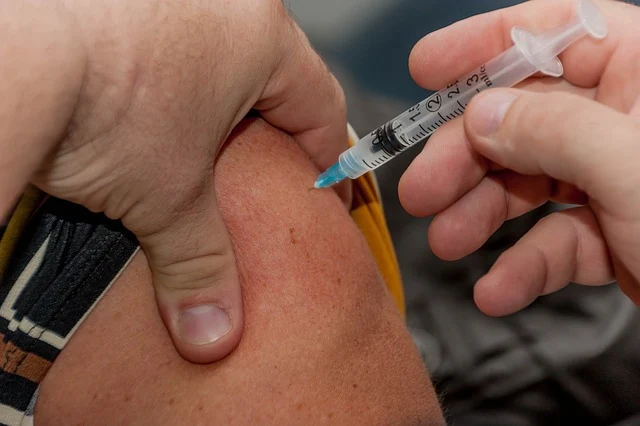US Immigration Medical Exam: Vaccination Requirements 2024

Navigating the path to U.S. permanent residency involves numerous steps, one of which is the mandatory medical examination. This health check aims to ensure that applicants meet health-related criteria for admission into the United States, including vaccination requirements. The process and requirements have evolved over time, reflecting changes in health standards and practices. Here's an updated overview of what to expect during the U.S. immigration medical examination, focusing on vaccination requirements.
Understanding the Vaccination Requirements
The Centers for Disease Control and Prevention (CDC), in conjunction with the Advisory Committee on Immunization Practices (ACIP), outlines specific vaccination requirements for immigration applicants. These requirements are designed to prevent the spread of vaccine-preventable diseases within the United States. The list of required vaccines includes, but is not limited to, measles, mumps, polio, tetanus, diphtheria, pertussis, and influenza, among others. The COVID-19 vaccine has also been added to this list, underscoring the importance of vaccination against current public health threats.
Age-Appropriate Vaccinations
Not all vaccines are required for every applicant; the CDC stipulates that vaccines must be age-appropriate as recommended by the ACIP for the general U.S. population. This means that during your immigration medical exam, the civil surgeon will determine which vaccines you need based on your age and vaccination history.
Exemptions and Waivers
There are provisions for exemptions under certain conditions, such as medical contraindications, lack of vaccine availability, or if a vaccine is not advised due to age. Applicants can also apply for waivers based on religious or moral convictions. However, it's crucial to document any exemptions or waivers properly, as they will need to be reviewed and approved by U.S. Citizenship and Immigration Services (USCIS).
Completing the Vaccination Series
For vaccines requiring multiple doses, applicants are generally not required to complete the series before their medical exam. However, they must receive at least one dose of each required vaccine. Subsequent doses can be administered after the medical examination, with applicants encouraged to complete the series as advised by healthcare providers.
Documentation and Proof of Vaccination
Applicants must provide documentation of previously received vaccinations to the civil surgeon during the medical exam. If you do not have proof of vaccination or immunity, the civil surgeon can administer the required vaccines or provide documentation for a waiver or exemption if applicable. It's essential to keep this documentation for your records and for submission with your immigration application.
Recommended Reading: How to Apply for Social Security Disability Benefits. This step-by-step guide offers valuable insights and helpful tips to assist you throughout the application process.
Paying for Vaccinations
The cost of vaccinations is the responsibility of the applicant. Prices can vary, so it's recommended to discuss costs with the civil surgeon ahead of time. Some vaccines, especially those requiring multiple doses, might be available at lower costs through public health clinics or vaccination programs.
Special Considerations
Certain groups, such as pregnant women or individuals with specific health conditions, may have additional considerations. The CDC provides guidance on vaccinations during pregnancy and for individuals with health conditions that might contraindicate certain vaccines. Civil surgeons are trained to identify these cases and provide the necessary documentation on the Form I-693, indicating any vaccines that are not medically appropriate.
Seasonal Vaccines
Seasonal vaccines, like the influenza vaccine, are required if the medical examination occurs during the flu season, typically from October 1 to March 31 each year. This ensures that applicants are protected against current strains of the flu virus.
For those dealing with allergies during the immigration process, check out this comprehensive guide on medication for treating allergy symptoms. This article offers tips on choosing the right medications to manage your symptoms effectively. You may also like: Helpful Medications You Should Carry While Traveling.
Conclusion
The medical examination and vaccination requirements are crucial steps in the journey toward U.S. permanent residency. By ensuring that all immigrants meet health and vaccination standards, the U.S. aims to protect public health and safety. Applicants are advised to prepare by gathering their vaccination records, understanding the requirements based on their age and health status, and planning financially for any necessary vaccines. Always consult with a designated civil surgeon or healthcare provider to ensure compliance with these requirements, and keep up-to-date with any changes to health policies affecting immigration to the U.S.
References
- U.S. Citizenship and Immigration Services. (n.d.). Vaccination Requirements. Retrieved from www.uscis.gov
- Centers for Disease Control and Prevention. (n.d.). Vaccination Technical Instructions for Panel Physicians. Retrieved from www.cdc.gov
- Centers for Disease Control and Prevention. (n.d.). Vaccination Technical Instructions for Civil Surgeons. Retrieved from www.cdc.gov
- Boundless. (n.d.). U.S. Visa Vaccination Requirements. Retrieved from www.boundless.com
- U.S. Citizenship and Immigration Services. (n.d.). COVID-19 Vaccination Required for Immigration Medical Examinations. Retrieved from www.uscis.gov
- Visaguide.world. (n.d.). USCIS Vaccination Requirements for Green Card. Retrieved from visaguide.world
Image Sources:
(1) pixabay.com | (2) DFID - UK Department for International Development, CC-BY-2.0, via Flickr


